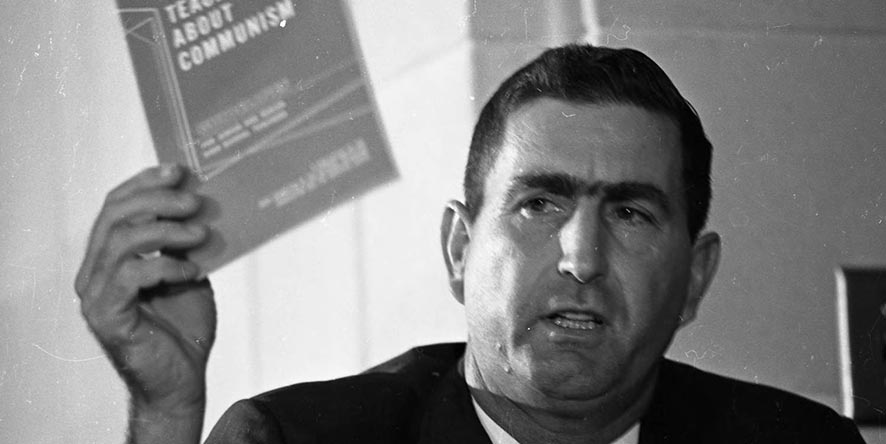History of the Law
The Speaker Ban Law was adopted on 25 June 1963, the last day of the legislative session, after just over one hour of debate. It prohibited speeches on North Carolina public college campuses by "known" members of the Communist Party, persons "known" to advocate the overthrow of the constitutions of North Carolina or the United States, or individuals who had pleaded the Fifth Amendment to decline answering questions concerning communist affiliations. The Southern Association of Colleges and Schools, the chief accrediting body of southern colleges, reported on 19 May 1965 that the Speaker Ban interfered with the "necessary authority" of the University of North Carolina administration and thus might be harmful to the university's academic status. At the request of William C. Friday, president of the University of North Carolina System, newly elected governor Dan Moore proposed that the General Assembly create a study commission to examine the law and remedies that might be considered in a special legislative session. On 5 November 1965 the study commission proposed a compromise that was approved by the legislature in a special session. This revised law changed the ban to restrictions on speakers exercised by university trustees under strict guidelines.
On 19 Feb. 1968 a three-judge federal district court in Greensboro ruled that the Speaker Ban Law was unconstitutional and violated First Amendment protections of free speech. Governor Moore did not appeal the decision. On 17 May 1995 the General Assembly finally repealed the Speaker Ban Law.

